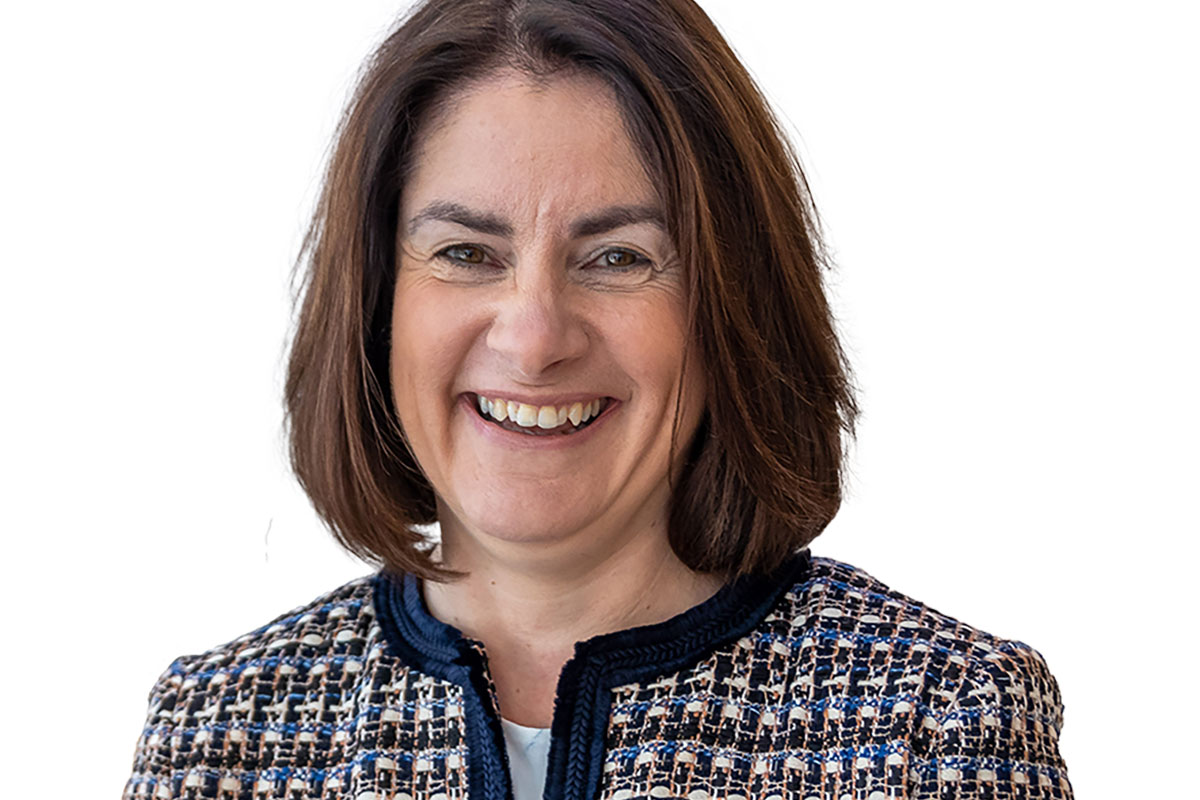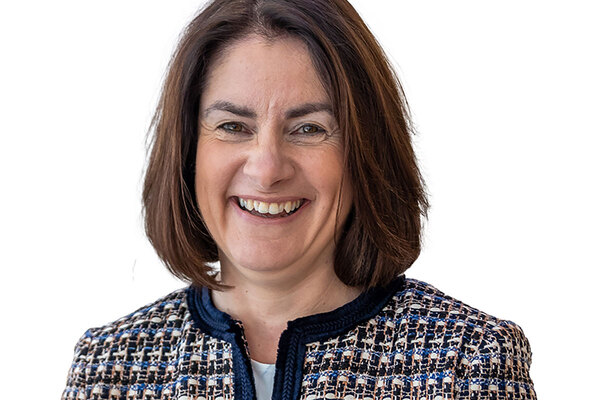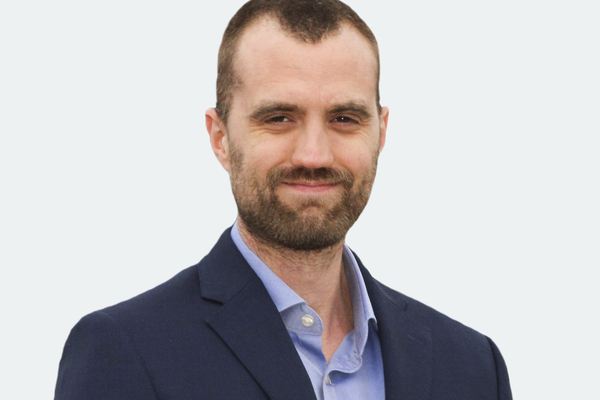Mergers, turnarounds and being the only woman in the room: Southern’s Sarah Smith on a 37-year career
As she approaches retirement as chief financial officer at Southern Housing, Sarah Smith looks back at 37 years in and around the sector, including seven mergers and a major business turnaround. Michael Lloyd reports
After 37 years working in and around social housing, completing seven mergers and spending almost 16 years in the finance department of Southern Housing and its predecessor organisations, Ms Smith believes it is “now time to pass the baton on”.
Southern announced in November that Ms Smith will retire as chief financial officer in May. She has worked with, and in, the housing association sector since 1988, when she started out as an auditor. Since 2009, she has served at Southern and its predecessor organisations.
A quarter-century of year-ends
Before the merger between Southern and Optivo in December 2022 that created the current 80,000-home group, Ms Smith had been chief financial officer of Optivo since 2017.
Prior to this, she was executive director of finance and resources at AmicusHorizon, which merged with Viridian to form Optivo in 2017.
“I have worked in or with the social housing sector for 37 years, and this year I will have completed 25 year-ends – excluding all the audits I did while in practice – plus seven mergers and acquisitions,” Ms Smith says.
“I think it is now time to pass the baton on. But I will still be working in the sector through my non-executive director roles.”
On the (audit) trail
Ms Smith started her career as an auditor, first at Finnie & Co, which was taken over by BDO, before moving to KPMG, providing audit, mergers and acquisitions, and financial planning services to the housing association sector.
Ms Smith describes how she then “jumped the fence” in 2001 to join L&Q, where she spent eight years as director of financial services, before joining AmicusHorizon, as it was then, in 2009.
“I had spent a lot of time auditing many housing organisations, but I wanted to be part of implementing and being able to make a real difference to the provision of social housing, not just handing over reports for others to action,” she says.
Turnaround
Ms Smith has witnessed many changes in her time in the sector, from the 1988 Housing Act opening up housing associations’ ability to borrow money from private lenders, to social landlords accessing the bond markets.
She has also seen the introduction and removal of rent convergence, a focus on sustainable finance and environmental, social and governance (ESG), as well as for-profit registered providers entering the sector.
More personally, the largest change for Ms Smith was one that she helped to implement.
When she joined AmicusHorizon as finance director in March 2009, the landlord had just come out of regulatory supervision and was completing a merger.
The regulator at the time, the Housing Corporation, had placed the group under supervision in 2007 because of concerns about its governance and management, arising from poor operational performance within one of the group’s subsidiaries.
AmicusHorizon and its subsidiaries amalgamated, and a new governance structure was created that focused more on residents.
Ms Smith describes how the team spent the best part of three years turning the organisation around, building a new culture, strengthening the finances, removing reliance on sales and establishing the landlord with a USP of “putting residents at the heart”.
“I think the turnaround of AmicusHorizon will stick in my mind [as an achievement] that I am very proud of,” Ms Smith says.
“We created a fantastic culture across the business, we established strong values, had a true focus on the residents. At that time, we were working with resident groups to drive better value for money at the same time as becoming a more efficient organisation.”
Mergers
Ms Smith is also “very proud” of the mergers and acquisitions she has been involved in.
She has completed seven mergers and acquisitions in her career – four while at L&Q, and three since joining what is now Southern Housing.
These included AmicusHorizon amalgamating with its subsidiaries in 2009, merging with Viridian in May 2017 to form Optivo, and, most recently, the association’s merger with Southern Housing Group to create the present-day Southern Housing in December 2022.
“I have been very proud of the various mergers and acquisitions I’ve been involved in – and for those troubled associations, ensuring that residents were fully protected,” Ms Smith says.
“You can always take learnings from any transaction you complete, but it’s about putting that into practice for the next time, and we’ve been able to do that through the recent mergers.
“I am very glad that, through the two large mergers we’ve completed (in 2017 and 2022), we were coming together with other organisations that also had a passion for services [and] engagement, so we’ve kept our focus on residents.”
Ms Smith adds that it is true that mergers have “grown in complexity” because of increased regulation, landlord health and safety compliance, and moving into the bond markets.
She describes how mergers in her early days were about taking over smaller landlords of about 5,000 homes that were each “very troubled and needed to be rescued”, and focusing on protecting residents in their homes.
There has since been a shift. In more recent years, mergers have been driven by a need for scale and wanting to expand development programmes.
However, the last merger to create Southern Housing was all about “ensuring financial resilience”, Ms Smith recalls.
Due diligence for mergers has also increased in complexity, she notes.
“Back in 2005, with my first acquisition, the due diligence was focused very much on finances [or] treasury,” Ms Smith says.
“Now it is so much broader. We have to really understand the assets and liabilities that we’d be taking on, whether we have sufficient funding for investment, and whether we have any capacity remaining for development.
“It is also becoming much harder to realise efficiencies from mergers, given the need for ever-increasing investment. And with scale comes complexity, in terms of bringing two organisations together. Systems are more complex with links now to third parties, and the volume of data we all hold is enormous.”
NHF SORP working party
Alongside her day job, Ms Smith has been active in sector finance and accounting. From 2017 to 2019, she served as chair of the G15 finance directors’ group, and from 2015 to 2021 she was vice-chair of the National Housing Federation’s (NHF) SORP working party.
Ms Smith joined when accounting for shared ownership was changing to reflect as two assets, back in the early 2000s.
“We’ve come a long way since then, introducing significant changes to pension scheme accounting, grant accounting and the shift to IFRS – reporting under FRS102,” Ms Smith says.
As chief financial officer at Optivo, Ms Smith also supported the introduction of the Sustainability Reporting Standard (SRS) for Social Housing in 2020.
More than 100 housing providers have since signed up to the voluntary standard, which is designed to help the sector measure, report and enhance its ESG performance in a transparent, consistent and comparable way.
Ms Smith is currently a board member of Sustainability for Housing (SfH), the board behind the SRS, and in this role has supported the development of the standard.
“It is unusual to have a dedicated SRS for the housing sector, but it is something that I know is very much welcomed by the investor community,” she says.
‘Male-dominated’ environment
Ms Smith’s first experience as a finance director in the sector was in March 2009, when she joined AmicusHorizon.
At the time, she recalls facing a “very male-dominated” external environment, while the executive team at AmicusHorizon had a 50:50 male-female split. At Southern, it is currently female dominated, she adds.
Ms Smith says that, from the external stakeholder perspective, her profession is “getting a bit better and gradually changing, but maybe not as quickly as we would expect”.
“And that has a knock-on impact, particularly when we are recruiting new colleagues into finance roles. I do still go to meetings where I’m the only woman in the room,” she says.
“The difference now, I think, is I have built my reputation and track record – people know me.”
What’s next?
After stepping down from Southern, Ms Smith will remain active in the sector, retaining a number of non-executive roles.
As well as being a board member of SfH, Ms Smith sits on the social housing sub-committee for the Institute of Chartered Accountants in England and Wales, as well as the NHF finance policy advisory group.
She is a board member and chair of the audit risk committee of Dolphin Living and a board member and chair of the audit committee of Reall Limited, an investor in affordable housing in urban Africa and Asia.
“I am also really keen to be able to spend more time focusing on SfH and ESG. I haven’t had the time to properly do this, with a heavy day job,” she says.
Outside work, Ms Smith is also motivated to keep active in a more literal sense.
“Fitness and well-being are also extremely important to me. I used to set myself annual challenges to work towards, so I’m looking forward to having more time to devote to fitness.”
Referring to the health and fitness of the sector’s finances, Ms Smith remains optimistic despite current challenges. These include, not least, findings from the English regulator’s Global Accounts that interest cover fell below 100 per cent last year, for the first time since the 2008 financial crisis.
“We’ve always faced challenges, but we have shown ourselves to be a very resilient sector,” Ms Smith says.
The regulator’s Global Accounts also revealed that the sector spent a record total of £8.8bn on repairs and maintenance during 2023-24.
Ms Smith says it is “absolutely right that we have had to switch our focus” to existing homes to ensure they are decent homes for residents to live in.
There has been an increased focus on the quality of existing homes since a coroner’s report published in 2022 concluded that the death of toddler Awaab Ishak from a severe respiratory condition in 2020 was caused by “prolonged exposure” to mould in his housing association-owned home.
The sector-wide focus on investment in existing homes has led many associations to cut back on their development programmes as they look to balance expenditure.
Development
At Southern, while the association is building out its committed development pipeline of 3,700 homes, the landlord has placed a “temporary pause” on new commitments.
Ms Smith confirmed this in Southern’s 2023-24 financial results, in which she explained that the pause was to “constrain debt balances”. Meanwhile, on completions, the landlord reported a fall, by about a third year-on-year, to 776, while starts dropped by 63 per cent to 349.
Southern had already indicated that it was reducing new development to build financial resilience and focus on its existing stock in its 2022-23 financial results.
Shortly after, at the end of June 2023, chief executive Paul Hackett said the landlord was reducing its development from more than 1,500 starts a year, down to just 250 starts annually over the next three years as a “direct consequence of the depletion of capacity”.
“I hope that the government helps housing associations recover development capacity so that volumes recover to previous levels,” Ms Smith says.
Returning to the sector’s ‘core purpose’
Ms Smith comments that while many associations have “necessarily diversified” over the years, she would like to see the sector return to its “core purpose”.
“I want to see the enthusiasm of everyone in the sector continuing,” she says.
“Our work is desperately needed: we have a housing crisis to solve. We mustn’t forget that we make a difference to people’s lives every day. We need to find a way of doing even more. The sector needs to ensure its voice is heard and that we stay relevant.”
Recent long reads from Social Housing
Waqar Ahmed’s parting request to the banking sector? ‘Take some more risk’
As he looks to step away from the financial helm of L&Q, 27 years after joining the group, Waqar Ahmed speaks to Sarah Williams about massive growth, major restructuring, Westminster’s “most stupid decision” and why the sector’s lenders must (finally) take on more risk
‘It was really the credit crunch that was our making’: Piers Williamson on two decades at THFC
After 22 years at the helm of sector bond aggregator The Housing Finance Corporation, Piers Williamson sits down with Sarah Williams to talk through two decades of turnaround, transactions and traversing market turbulence
‘It’s not something we would ordinarily do’: why the RSH made a payment to a failing provider
At the start of 2023, the English regulator exercised a power it had not used for more than two decades: it gave direct financial assistance to a struggling housing association by providing liquidity support. Sarah Williams reports
Devolution and housing in England – where are we now?
As the Labour government firms up plans for its next set of devolution deals, Social Housing looks at what settlements to date have meant for housing, and what is needed to do more. Robyn Wilson reports
Under the radar? Why housing providers need to talk about fraud
Data on the volume, types and cost of fraud to the social housing sector is hard to come by. Keith Cooper hears from providers and experts about why that matters – and what we do know about recent trends in fraudulent activity
Captive insurance: why more than 15 housing associations are exploring the approach
Michael Lloyd investigates what captive insurance entails and whether it could provide an answer to the sector’s challenges in this area, as Social Housing learns that at least 15 associations are exploring the approach
Sign up for Social Housing’s weekly news bulletin
Social Housing’s weekly news bulletin delivers the latest news and insight across finance and funding, regulation and governance, policy and strategy, straight to your inbox. Meanwhile, news alerts bring you the biggest stories as they land.
Already have an account? Click here to manage your newsletters.
RELATED










